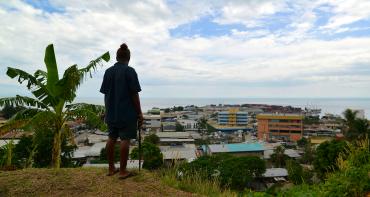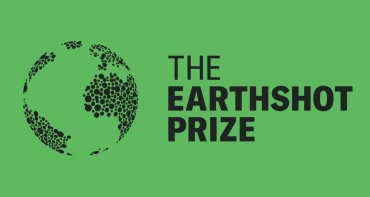In August 2017, Jeff Ardron, Ocean Governance Adviser at the Commonwealth Secretariat, reported on the first High-level Pacific Blue Economy Conference, in Fiji: “The ‘Blue Economy’ is a term that appears to have been invented independently by both Pacific Islanders and the colourful German entrepreneur Günter Pauli.

This article originally appeared in the on-line version of our Biennial Report. Browse the full report
In August 2017, Jeff Ardron, Ocean Governance Adviser at the Commonwealth Secretariat, reported on the first High-level Pacific Blue Economy Conference, in Fiji: “The ‘Blue Economy’ is a term that appears to have been invented independently by both Pacific Islanders and the colourful German entrepreneur Günter Pauli. And both were in attendance at the conference. Hosted by the Pacific Islands Development Forum (PIDF), it was well attended with high-level dignitaries, celebrities like Jean-Michel Cousteau, and 250-300 participants. The Commonwealth Secretariat was also invited to speak in two separate sessions – one on information needs and another on the Commonwealth’s Blue Charter.”
“What caught my attention right away”, said Jeff, “was the universally high level of awareness that sustainable ocean development must truly be sustainable. Be it the Prime Minister of Fiji or Tuvalu or Tonga, or any number of other senior ministers in attendance, on this they could all agree. I tried to imagine leaders anywhere else in the world, including Europe with its reputation for being 'green,' saying the things I heard here, and no, I could not. Perhaps out of necessity, as the ocean inexorably inches up their shores, Pacific Islanders last week taught me that hope is a mighty sword.
“Here, the Commonwealth’s message of regenerative development that helps heal and restore our planet’s life support system, was very well received. Likewise, the Commonwealth’s Blue Charter initiative proposes to apply the 16 principles of the Charter of the Commonwealth to ocean development, was also welcomed. Though, after my talk, a few polite islanders (and they all seem to be polite!) quietly pointed out to me that Pacific Islanders have little need of more high-level declarations. What is needed is action… True, so true. The Commonwealth’s Blue Charter must be linked to a programme of actions.”
A US $100 million project for the Caribbean
Our work on the blue economy continued to gain global and national traction in 2015-2017. The Secretariat had undertaken work with the Organisation of Eastern Caribbean States (OECS). This resulted in the World Bank announcing the launch of a US$100 million project to support the implementation of the blue economy in the Caribbean. In partnership with the World Bank, we co-authored a major report, Toward a Blue Economy: A Promise for Sustainable Growth in the Caribbean.
Our study noted that activities that rely on the ocean - from leisure and fishing to offshore oil and gas – generated revenues of US$407 billion in 2012. This is equal to 14 to 27% of the global ocean economy, though the Caribbean Sea’s area accounts for just 1% of the global ocean.
This economic utilisation does not come without a cost though. In the Caribbean region we are seeing a number of deeply concerning trends which threaten to undermine the ocean’s ability to support long-term sustainable use. Many countries have experienced declines in stocks of iconic commercial species such as rock lobster and conch. Pollution threatens human health and the natural character that tourists value. Furthermore, the reduction in coastal habitats makes countries more vulnerable to the impacts of climate change.
Other progress in 2015-17
We helped Seychelles complete its draft Blue Economy Roadmap – a key milestone for the country. To support further development and implementation of this framework, we deployed a Commonwealth Fund for Technical Co-operation (CFTC)-funded long-term technical adviser to Seychelles.
The Bahamas and Vanuatu each adopted new national oceans policies, developed with Secretariat support. The DEFRA Group of the UK worked with us on the development of toolkits for marine pollution prevention. This was under the Blue Charter and in alignment with the work of the Commonwealth Marine Economies Programme.
In May 2016, representatives from 18 Commonwealth small states met in Seychelles for the Fourth Global Biennial Conference on Small States. They reflected on the potential impact of recent international agreements on the sustainable development of their countries. In addition, they explored available mechanisms to build resilience and secure financing to achieve their development goals.
"The Commonwealth has worked arduously to increase the awareness of the vulnerabilities of small island developing states and remains at the head of policy research and advocacy to assist small states such as Tonga to build resilience, access financing, alleviate debt burdens and devise strategies to respond to natural disasters." - Tonga’s Former Deputy Prime Minister and Minister for Foreign Affairs Siaosi Sovaleni



